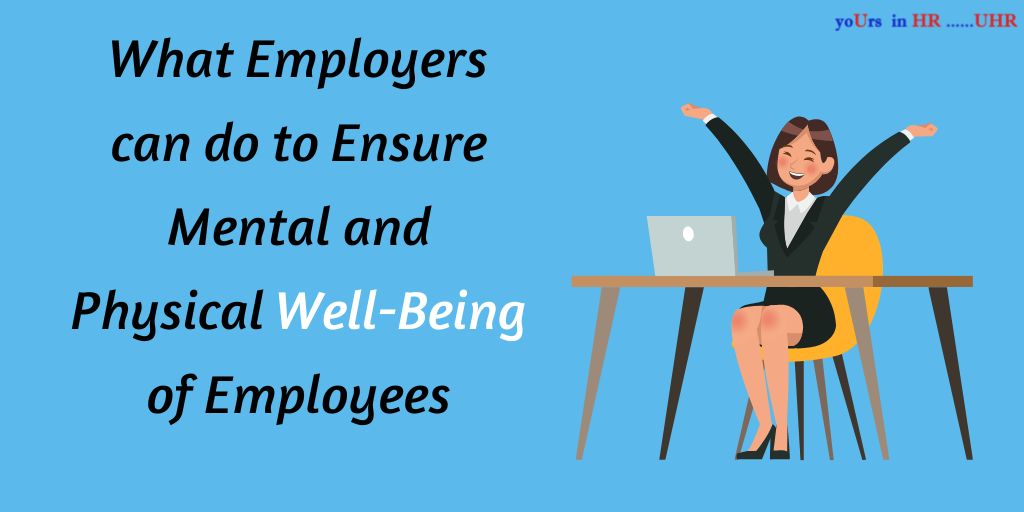
How well are people in Indian offices doing when it comes to mental-health? What can employers do to ensure their employees do not become a part of the recent statistics on depression and general psychological well-being? As an article by One-to-One Help mentions, around 42% of Indian workforce is depressed. There has been reported around 40 to 50% of increase in employees suffering from anxiety and depression, primarily as a result of demanding work schedules and high stress levels. 23% of the workforce suffers from obesity, 9% from high blood pressure, 8% from diabetes and 5.5% from spondylosis. They are all more or less caused by high levels of stress, and in a vicious cycle, keep contributing to the stress because of the way they affect the mental and physical well-being of the employees, eventually leading to a burnout.
In the light of these statistics, it is important that employers and management level personnel take steps to ensure that the workplace becomes a conducive environment for the mental and physical well-being of their employees. What steps can be taken? Let us quickly have a look.
Creating a Psychologically Safe Space:
A Gallups study shows that employees whose managers are always willing to listen to them about their problems are 62% less likely to be burned out. So, maybe one of the ways workplaces can become places conducive to employee well-being is making them psychologically safe. Psychologically safe means that the employees should be able to voice their feedback, concerns, ideas, express vulnerabilities and even negative feedback without feeling afraid or/and without fear of harsh repercussions. The workplace should be a place of trust and a space that allows the employees to be authentic within the boundaries of professionalism, of course. We have talked in one of our earlier articles about how the workplace can create spaces where it is okay to voice negative feedback and emotions without fear of being judged. It is all about acknowledging the problems, listening actively even when a solution isn’t at hand and thinking about realistic ways of dealing with the problems, instead of always trying to remain positive. This is especially needed when the issues that are said to be causing stress and burnout need to be addressed- the problem must be acknowledged instead of sweeping it under the carpet of positivity.
Fostering Teamwork, Community and Accountability:
Mental and physical well-being of the employees can also be cultivated by encouraging team-work and demanding accountability, as the article by One-to-One Help points out. The former could be achieved by undertaking fun team-building trips and activities every once in a while, or by having informal non-work-related talking chai sessions where employees can engage in casual chit-chat, and improve their individual and group dynamics. Well-being workshops can also be organised every once in a while. It is about ensuring a healthy sense of community.
Although, activities of fun are enjoyable for most people, employers also need to ensure these activities don’t become enforced demands of ‘mandatory fun’. Some employees just wouldn’t like to spend too much time in crowds because of their individual nature. If forced participation is more likely to affect their work and stress levels in a negative manner, then they should be given options to not participate.
Demanding accountability is all about creating certain ground-rules about how to approach unpleasant or difficult situations, how to respond and other rules of engagement. A sense of accountability ensures that we take responsibility about each other, which in turn fosters a safe community.
Ensuring Ergonomic Welfare:
Besides all these psychological tools, it is also a good idea for employers to ensure ergonomic welfare. As an article by The Business Goals points out, ergonomic welfare is often forgotten in the office. Ergonomic welfare includes ensuring the physical wellbeing of employees isn’t affected by long hours of screen-time, bad posture for prolonged periods of time and about maintaining a comfortable, workable physical environment for them in the office. Employers can take steps to keep reminding their employees to take frequent breaks, walks around the office etc. If possible, employers can also create small lounging areas where employees can sit around for sometime and decompress.
Thus, employers, managers, leaders can take these simple humane steps to ensure their employees can trust the office environment, be their authentic selves, create well-functioning bonds with their colleagues, be productive in their work and have better days at work. Depression, anxiety, burnout are things built up over time through the small and big issues. Ensuring an environment of mental and physical well-being in the office ultimately ensures a positive step towards fostering the desired company culture and mission.

